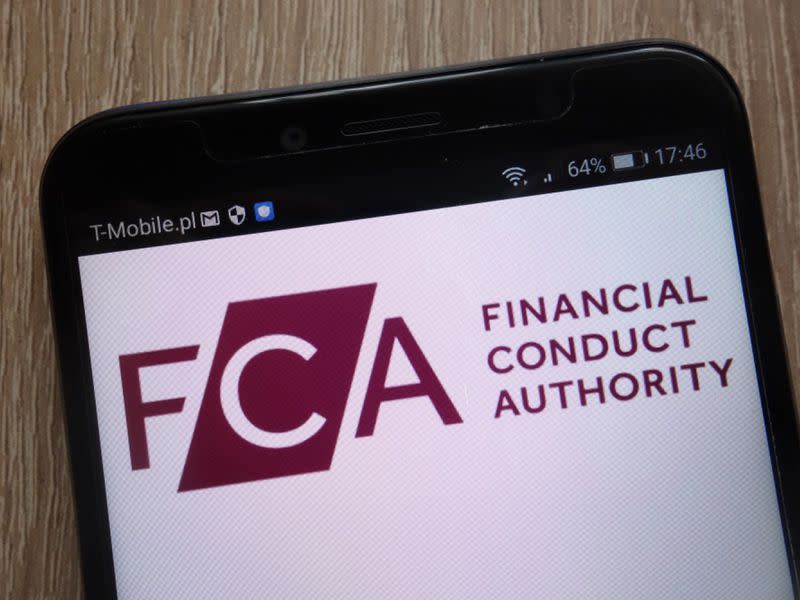The FCA Is Holding Its First CryptoSprint: Here’s What the Digital Asset Community Wants From It

Don't miss CoinDesk's Consensus 2022, the must-attend crypto & blockchain festival experience of the year in Austin, TX this June 9-12.
The U.K.'s Financial Conduct Authority (FCA) is holding a two-day CryptoSprint, a forum for the financial regulator to discuss oversight of the industry with experts and participants.
Many in the crypto community are hoping the event, which runs Tuesday and Wednesday, will help the U.K. become more crypto friendly, in line with the announced policy of the Treasury, the government's finance arm. The FCA said last month it has been more critical of crypto in the past.
FCA sprints allow the financial regulator to focus on a specific topic. It invites experts from the relevant industry to answer questions on the ramifications of regulating a particular way, said Christopher Kiew-Smith, chief compliance officer at Zodia, a crypto custody provider. Kiew-Smith worked at the FCA from 2015 to 2017 as a senior associate, according to his LinkedIn profile.
“Our hope from the CryptoSprint is that this is the start of the process of accelerating the regulator up to the speed that the government – and the industry is trying to move at,” said Nick Jones, CEO of Zumo, a U.K.-based crypto wallet provider.
The FCA became the U.K.'s authority for anti-money laundering and countering the financing of terrorism in 2020, requiring crypto companies to register. A temporary registration regime (TRR) allowed them to continue operating while their applications were considered. So far, 34 companies have full registration and five companies remain on the TRR.
International crypto companies
Grayscale, a U.S.-based crypto asset management company, is considering doing business in the U.K., CEO Michael Sonnenshein said in an interview. Grayscale shares a parent company, Digital Currency Group, with CoinDesk.
“You do need a new set of rules and regulations that can act as a tailwind to support job growth [plus] product and services development,” Sonnenshein said, talking about the U.K.
Kevin Yang, managing partner at Gate Ventures, crypto exchange Gate.io’s venture capital arm, told CoinDesk it was “paying attention to the progress of crypto regulations” in the U.K.
“We need to encourage innovation, right? On the other hand, we have to protect investors, so it's more like how can you balance these two sides,” Yang said.
New policies?
The crypto community is calling for a “collaborative joined-up approach and more government departments to write new fit-for-purpose regulation for the digital age,” Ian Taylor, the executive director of CryptoUK, a trade association for the industry, said in an interview.
The U.K. announced that it will be working on a new crypto regulatory package and has plans to regulate stablecoins. The U.K. already has a manual on how the HM Revenue and Customs, the government's tax arm, will tax crypto.
Read more: UK Crypto Industry Hopes for More Clarity From Planned Stablecoin Rules
Custody
A key question that will be tackled at the CryptoSprint will be: What gaps need to be addressed in the existing custody regulatory framework to protect consumers?
“It’s a critical topic, because the processes and procedures required are fundamentally different to those used to custody financial products or physical assets,” Sabrina Wilson, the chief operating officer at Copper, a custody solution provider on the TRR list, said in a statement.
Custody providers offer storage and security services for cryptocurrencies.
The FCA will also explore how clients' ownership rights of crypto assets are proven and protected.
Having something like the Financial Services Compensation Scheme to compensate clients of crypto firms that have gone out of business could give people more security, Zumo’s Jones said.
In an ideal case, “there's no financial crime, there's no money laundering, the company is likely to still exist in a year's time because the regulator is doing checks on whether there is enough cash in the business to keep going and there's enough cash to pay people back,” he said.
“The sector won’t be able to truly go mainstream without these protections,” Kene Ezeji-Okoye, co-founder of Millicent, a U.K.-based stablecoin provider, said in a statement, talking about consumer and anti-money laundering protections.
Information on crypto assets
Another question the FCA will consider is how information relating to the issuance of crypto assets should be disclosed to investors. Retail investors without access to financial advice are likely to need clearer messages regarding risks than institutional investors.
“The issuance stage is the most appropriate stage for information relating to the asset to be disclosed to users, as it will help to inform users whether to participate or not,” Ryan Shea, a crypto economist at France-based Trakx, a crypto index trading platform with a U.K. presence, said in a statement.
Updates should be provided when specific events that affect the token occur, Shea said.
Regulatory obligations
The FCA will also discuss where regulatory obligations on crypto asset models should be placed.
Regulators need to balance capturing relevant activity that poses a risk to consumers whilst also enabling innovation, the FCA said on its website.
Most of the responsibility will fall on centralized entities that can easily be identified, Jones said. But it needs to be balanced. Excessive oversight of the crypto sector could cause companies to move to other jurisdictions, Jones said.
The FCA will also have to find ways to regulate decentralized systems that do not have a central player.
“Regulating a decentralized crypto asset model is much more challenging than centralized asset models because they do not easily line up with geographic boundaries of national regulators,” Shea said in a statement.

 Yahoo Finanza
Yahoo Finanza 